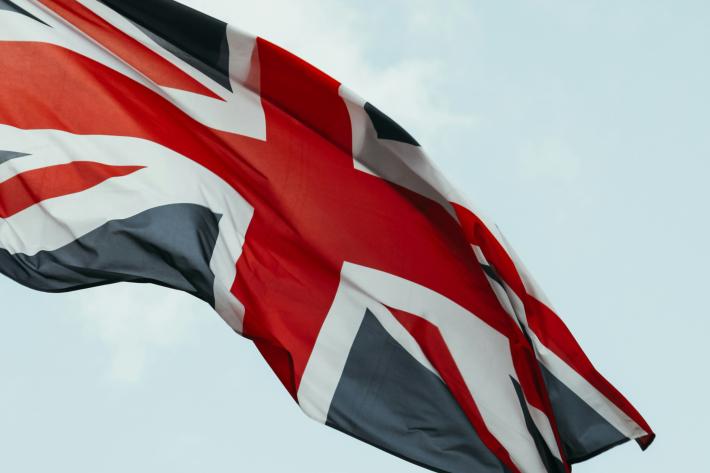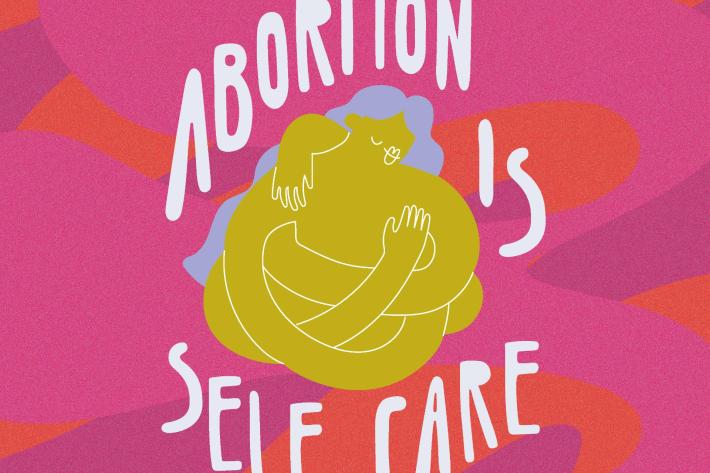
Spotlight
A selection of news from across the Federation

European Commission's new Women's Rights Roadmap includes SRHR—Now we need action
On 7 March, the EC released a new political declaration committing to uphold and advance women's rights. We welcome the inclusion of SRHR and other key topics. Now impactful actions are needed.
Filter our news by:


| 14 August 2020
Italy: New rules on medical abortion a breakthrough for reproductive freedom
IPPF EN is extremely pleased at Italy’s unveiling this week of new guidelines on medical abortion. The updated rules will be a great step forward for reproductive freedom in Italy, which has been curtailed for many years by the government’s failure to protect access to legal abortion care, in particular by allowing the widespread and systemic denial of care by medical professionals and institutions. The breakthrough comes after a decade-long campaign by Italian pro-choice activists. Announced by Health Minister Roberto Speranza on 8 August, the details of the reform were confirmed in the new guidelines released on 13 August. A key change is the removal of a medically unnecessary requirement for a 3-day hospital stay in order to access medical abortion, which served only as an obstacle to care. Crucially, provision of medical abortions will be extended to local, public health centres and family planning services, making this essential healthcare more accessible to local communities and in particular vulnerable groups such as young people, migrant women and those with limited financial means. The timeframe during which a woman or girl can access medical abortion has also been increased from 7 to 9 weeks since her last menstrual period, in line with World Health Organization recommendations and most other EU countries, thereby doing away with another arbitrary hurdle to those in need of abortion care. Medical abortion was approved over 10 years ago in Italy, but has had limited take-up as a result of the previous restrictions. The opportunity for positive change is all the more significant, given the obstacles to abortion care imposed by a system that for years has refused to protect women’s health and dignity. “This bold move by the Italian government is a resounding victory. It follows protests in Perugia in June by activists outraged at a latest attempt to undermine women’s health and dignity. The new guidelines show that politicians have finally listened to calls to make women’s healthcare a priority. We believe that the new rules will support women’s freedom to access safe and respectful healthcare when they need it most,” said Irene Donadio, Senior Advisor at IPPF EN. Campaigners and advocates will now need to focus their attention on the regional level, where coercive forces in some parts of the country are expected to try and stand in the way of the greater reproductive freedom that is made possible by the new guidelines. Training and financing will also be needed to support implementation of the new measures. Nevertheless, this week’s developments go beyond rhetoric and pave the way for true change in women’s lives. ¨¨ For press enquiries, contact: Anna Michalowicz, [email protected], +32 (0)496 734 164 Photo: RICA Prochoice/RU2020, Claudio Colotti

| 25 June 2020
Rule of law and women’s safety under attack in Poland before Presidential elections
On the 23rd of June, within the fourth package of “pandemic-related measures”, the Polish President amended the Criminal Penal Code to put pressure on judges to enforce the most severe punishment in Poland’s abortion law. These provisions include prison sentences of up to 8 years for those that perform abortions outside the limits of Poland’s already highly restrictive law. The law itself has not been changed, but the amendment restricts the space for interpretation formerly granted to judges and risks paving the way to a more rigid interpretation of abortion law. Women's safety is not however the only target: changes to the Criminal Code also include penalties for offending the President, petty thefts and involuntary medical mistakes. With the Presidential election coming up this weekend in Poland, the ruling party’s actions would suggest it is seeking to cement its power and rally its base by passing this suite of changes, and further erode the rule of law, human rights protection and democracy. “Reports in the Polish and international media as well as declarations by members of PiS, the ruling party, point to a cynical political game which is being played at the cost of women’s lives, and much more. The rule of law and human rights are hijacked to gain points with a very conservative electorate before the upcoming election. These new changes to the Criminal Code will inevitably put further pressure on judges to conform to the ultra-conservative political agenda of the government” said Caroline Hickson, Regional Director of IPPF EN. In Poland, the legislation on abortion care is already amongst the most restrictive in Europe. Abortion is only lawful to safeguard the life or health of women, in situations of severe fetal anomaly or where the pregnancy results from rape or incest. Attacks to restrict rights further have been constant, with ultra-right groups influencing the PiS agenda. In May, the Polish Parliament already proposed to remove the legal obligation for medical facilities to refer patients to another facility if they refuse to provide abortion care based on personal beliefs, with potentially dramatic consequences for women, who may be unable to access care. The new provision aims to ensure the most restrictive and severe interpretation of the law opening the way to heavy prosecution and sentencing. Doctors who perform abortions have already faced increased prosecution for many years and women’s community support groups have become the target of attacks in the last two years. “These changes in law are nothing more than a trojan horse hidden in an anti-COVID-19 package. It’s yet another example of a government exploiting the pandemic to consolidate its authoritarian power, to weaken democracy and the rule of law, and to trample on human rights. They signal the continuation of the war on reproductive freedom and women’s rights. President Andrzej Duda has a track record of trying to swing votes by criticizing the EU stand on the Istanbul Convention which combats violence against women, relentless efforts to completely ban abortion, hatred campaigns against the LGBTI+ community and dismissing the EU consensus on gender equality and the protection of minorities from discrimination. The list goes on and it will worsen if he gets reelected” said Irene Donadio, Senior Adviser at IPPF EN. Polish civic groups – led by the Polish Women’s Strike coalition - are gathering outside the Presidential Palace in Warsaw in order to condemn these retrograde laws and ask for the protection of all people from coercion and ill-treatment. A performance and a silent protest respecting social distancing is being organized today at 18.00 despite the highly criticized limitations on assembly imposed by the Government as a way to fight the pandemic and tighten control over dissident voices. IPPF stands with the Polish Women’s Strike who continues to fight for their freedoms and EU values, and with the international community that continues to condemn the Polish ruling party's incursions on the rule of law and the safety and freedom of women. For more information or an interview please contact: Irene Donadio, Senior Adviser at IPPF EN, [email protected], +32 491 17 19 390

| 10 April 2020
Polish ruling party exploits the current health crisis to undermine women and young people’s safety
Amid the Covid-19 pandemic, bills banning abortion care in practice and endangering young people by criminalizing relationship and sexuality education are set to be voted in the Polish Sejm on 15 and 16 April 2020. The ultra-conservative ruling party is taking advantage of the enormous hardship faced by Polish people to continue its relentless series of attacks on women and young people’s safety and wellbeing. People are sick, domestic violence is growing, one million jobs have been lost, yet the government adds to the burden of lack of social supports. The Polish law on abortion care is one of the most restrictive in Europe. Abortion is only lawful to safeguard the life or health of women, in situations of severe fetal anomaly or where the pregnancy results from rape or incest. In practice, 98% of legal abortions in Poland are performed on severe fetal anomaly grounds. During COVID-19 times, with travel restriction in place, hospitals overwhelmed by the health emergency, many from the medical staff already denying care based on personal beliefs or convenience, women’s options are drastically reduced. This proposed bill would result in a total abortion ban in practice, forcing women and families to go through pregnancies against their will in case of fatal fetal abnormality at a time of dramatic economic instability with no social support from the state. This shows how little women’s lives and dignity are valued by the Polish ruling class. The bill would also gag doctors by restricting what they can say to their patients about the condition of the fetus, violating patients’ rights to information. The change proposed by this bill is permanent and will place women’s health and lives at risk. “We know that when women and girls cannot access abortion care, in their desperation, they will resort to taking matters into their own hands, often with tragic consequences. Domestic violence is rising sharply, and families are stretched to the limits of their endurance. It is the moment when we most need to ensure we provide all the care that our societies need” said Caroline Hickson, IPPF EN Regional Director. The second bill would result in a complete ban on teaching relationship and sexuality education, sharing evidence-based information on the Internet, as well as forbidding doctors from providing contraceptive care to young people under 18. Those who work to protect young people by giving them information about healthy relationships, intimate life and prevention of violence could face a 3-year prison sentence under this draft bill. The only source of information young people could end up with is pornography and religious doctrines. UNESCO guidelines underline that education addressing equality between men and women and focusing on consent can reduce intimate partner violence. Why is this not a priority when violence against women is endemic and we know is even aggravated during the lockdown? “The timing of these bills is dodgy. As public protests cannot take place due to the measures put in place to fight the pandemic, women are silenced. The medieval forces behind these proposals know massive protests would have been organized across the country to fight these draconian bills. Enough is enough” said Irene Donadio, IPPF EN Senior Adviser. We call on Members of Poland’s Parliament to listen to the voices of women and families across Poland, to protect women’s safety and young people’s health and to reject these regressive bills. The Polish government must prioritise people’s health and wellbeing, democracy and the rule of law. Exploiting the health crisis to attack women’s health care is reckless, cruel and a guarantee of aggravated human suffering. For more information or an interview please contact: Irene Donadio, Senior Adviser at IPPF EN, [email protected], +32 491 17 19 390

| 07 April 2020
Failures to guarantee safe access to abortion endangers health of women, girls amid COVID-19
Joint press release with Amnesty International, Centre for Reproductive Rights, Human Rights Watch and International Planned Parenthood Federation. 100 groups call for urgent measures to safeguard access to abortion. European governments should urgently guarantee safe and timely access to abortion care for women and girls in the region during the COVID-19 pandemic, 100 nongovernmental organizations said today. Many women and girls in Europe are struggling to safely access abortion care during the pandemic as barriers caused by highly restrictive abortion laws and onerous administrative requirements to access abortion services make safe access to this essential health care extremely difficult. The call comes as Poland’s parliament prepares to debate a draconian new law that would make one of the region’s most highly restrictive abortion laws significantly more stringent. “European governments must act urgently to guarantee safe and timely access to abortion care during the COVID-19 pandemic,” said Leah Hoctor, Regional Director for Europe, Center for Reproductive Rights. “They should move swiftly to eradicate all medically unnecessary requirements that hamper access to abortion care and should authorize women to access early medical abortion from their homes.” Governments should recognize abortion as essential health care and should take measures to ensure that women and girls can safely access abortion care. Most governments in the region have not implemented measures to ensure safe and timely access to essential sexual and reproductive health services, supplies or information during the pandemic, including for at-home management of medical abortion. Many hospitals and clinics have reduced reproductive health services to a bare minimum, or closed altogether due to staff shortages and reassignments, among other reasons. In many places, accessing normal clinical services has become extremely difficult. Restrictions to reproductive health services disproportionately affect women living in poverty, women with disabilities, Roma women, undocumented migrant women, adolescents, trans and gender non-binary people, and women at risk of or who are survivors of domestic and sexual violence. Particular concerns arise in relation to those six European countries where abortion is still illegal or severely restricted and in countries where, due to a range of barriers such as administrative processes or doctor’s refusals of care due to their private beliefs, women are often forced to travel abroad to access abortion care or to obtain abortion medication from other countries by post. The harmful impact of these highly restrictive laws and barriers are compounded in the current context as it may now be impossible for women to travel to access legal abortion abroad or to obtain medication sent by post from medical providers in other countries. “Whilst the pandemic is impacting every aspect of our lives, it should not be used as an excuse to undermine women’s rights to make decisions regarding their reproductive and health rights,” said Caroline Hickson, IPPF EN Regional Director. Read full civil society statement here. For more information or to arrange an interview contact: Caroline Hickson, IPPF EN Regional Director, [email protected], +32 491 908767

| 12 February 2018
IPPF Statement on US State department 6 month GGR review
Global gag rule impact for IPPF is a life or death situation for clients The impact for people receiving care from member associations of the International Planned Parenthood Federation around the world is devastating. A total of 29 countries are seeing clinics, staffing, services and health supplies reduced due to the loss of US funding through the global gag rule. The policy, the most extreme of its kind, will hurt family planning , HIV, sexual and gender based violence and Tuberculosis healthcare for men, women and young people. IPPF’s members believe reproductive health care is a right and everyone should be able to make choices about their well-being. The Global Gag Rule not only undermines but violates these rights and therefore, IPPF and its members cannot and will not support it. The review is unable to quantify the long term effects of the Global Gag Rule. But those effects are already being felt by people in need of care. IPPF members have already been forced to close clinics, reduce staff and cut back on critical health supplies. This is just the beginning of a long lasting and tragic legacy. The cuts hit services and people in a many ways. Not all of them can be quantified. In many cases, IPPF Members are the one lifeline for our clients. The human cost – people not being able to make choices about their lives – is beyond figures. Combined with loss of USAID family planning funding, the added loss of HIV funding doubles the impact on clients’ lives and health in many countries in Africa, Latin America and the Caribbean where the amounts of the losses are larger and the populations affected are often the most marginalised and vulnerable. Examples of impact: Mozambique www.ippf.org/blogs/global-gag-rule-ggr-cuts-deep-sexual-and-reproductive-healthcare-mozambique IPPF Member Association: Associação Moçambicana para Desenvolvimento da Família (AMODEFA) USAID support accounted for 60% of funding 47% reduction in AMODEFA personnel: redundancy of 43 staff and release of 650 peer educators Closure of 18 youth-friendly clinics Closure of 72 mobile clinics per month Swaziland: IPPF Member Association: Family Life Association of Swaziland (FLAS) USAID support accounted for 25% of funding Redundancy of 12 staff and 26 outreach workers Reduced geographic coverage of services from 14 to 4 towns Botswana: IPPF Member Association: Botswana Family Welfare Association (BOFWA) 60% of funding at risk Suspension of one clinic, services of 7 others scaled to bare minimum 71% reduction in skilled staff About IPPF: IPPF is made up of national organisations that offer sexual and reproductive health and rights services. The Federation has 141 Member Associations and 24 partners covering over 170 countries.This globally connected, locally owned network delivers 300 services every minute of every day. Human cost in figures www.ippf.org/news/human-cost-global-gag-rule Global gag 1 year on www.ippf.org/resource/global-gag-rule-one-year and www.ippf.org/global-gag-rule Country stories: www.ippf.org/stories/i-am-afraid-what-will-happen-when-there-will-be-no-more-projects-one

| 24 January 2017
Why we will not sign the Global Gag Rule
On 23 January 2017 President Trump signed an executive order reinstating the Global Gag Rule, or the Mexico City Policy. The International Planned Parenthood Federation (IPPF) believes in the right of every individual to decide about their own health and well-being. As an organisation that seeks to protect and improve the lives of women, men and children around the world, IPPF and its partners in 170 countries will not sign a policy that denies human rights and puts the lives of women at risk. The Global Gag Rule denies U.S. funding to organisations like IPPF if they use money from other donors to provide abortion services, counselling or referrals—even if abortion is legal in a country. It blocks critical funding for health services like contraception, maternal health, and HIV/AIDS prevention and treatment for any organisation that refuses to sign it. When it has been enacted by previous Republican Presidents, evidence has shown that the Global Gag Rule has not reduced the number of abortions; rather, by eliminating access to contraception, it has led to more unintended pregnancies and more unsafe abortions. IPPF is the largest non-governmental provider of contraception in the world. It has worked with thU.S. government for decades. Our global network of local partners delivers more than 300 services every minute of every day, including 70 million contraceptive services every year. The Global Gag Rule’s reinstatement will result in additional unintended pregnancies and countless other needless injuries and deaths. It means IPPF will lose $100 million USD for proven programs that provide comprehensive sexual and reproductive health services for millions of women and youth who otherwise go without these vital services, including women suffering the burden of health and humanitarian crises. Over the years USAID has been a huge supporter of family planning – with a budget of over $600 million per year. Reinstatement will mean that years of progress to increase access to essential services globally, will be lost. We cannot—and will not—deny life-saving services to the world’s poorest women. We will work with governments and donors to bridge the funding and service gaps the Global Gag Rule creates. We will ensure that women can exercise their rights and access safe abortion and family planning. WHAT IS THE GLOBAL GAG RULE? Click here for further details.
















